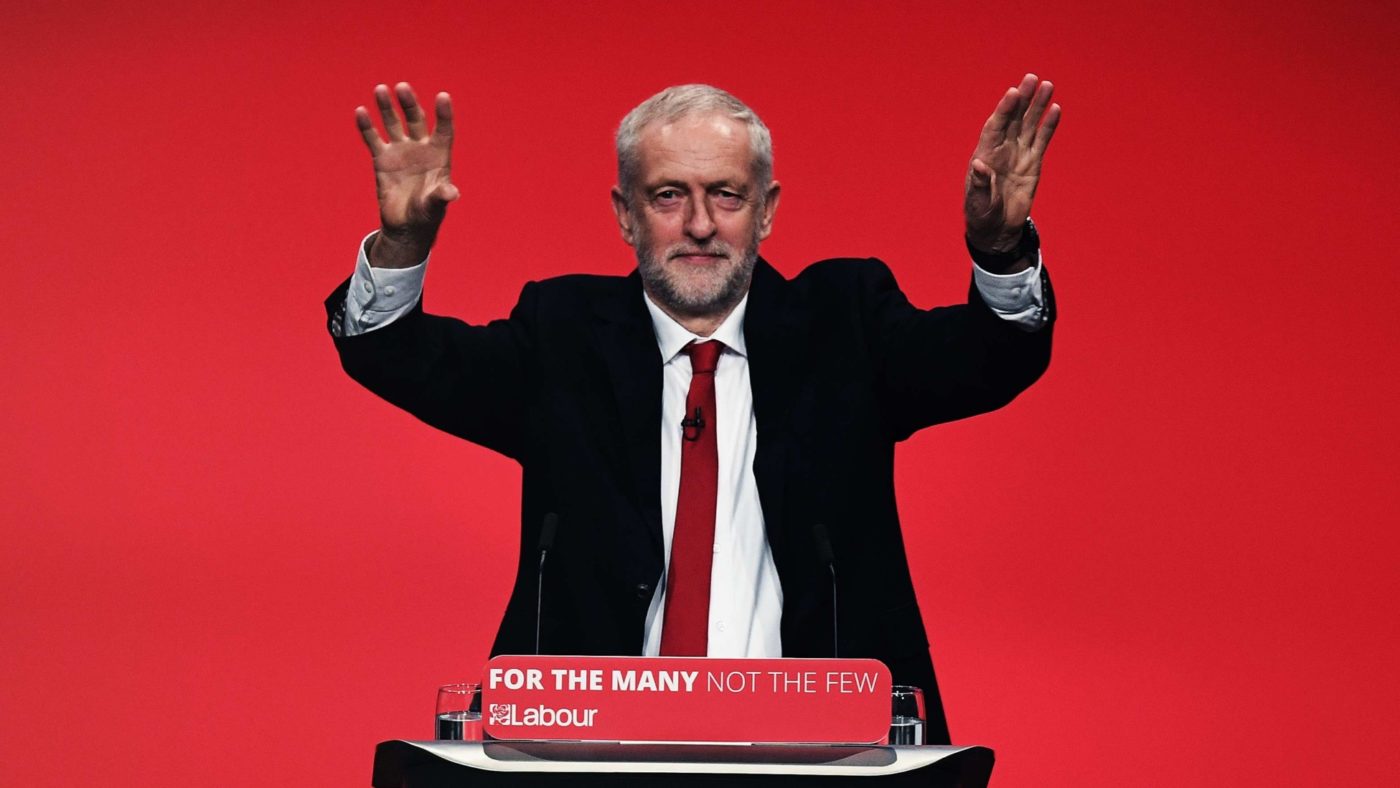You could call it the “pound-drop” moment. John McDonnell’s astonishing statement about Labour’s secret war games was the conference season moment that most illuminated the nature of British political combat at this juncture. No accident, McDonnell’s confession also offered the Conservatives a neo-populist model to follow. It is one they should ignore.
Traditional political communication starts, believe it or not, with substance. That is to say, the policy or principle to be articulated provides the communicator with their fixed point, with pathos applied afterwards. Yet for populist communicators, the reverse is true. It’s not so much they lack principles, more that expressing them is subservient to evincing an emotional reaction. If outlandish policies are required to turn the dial up to fever-pitch, so be it. Thus works the populist ratchet.
McDonnell’s outburst should be seen in this context. So what if the “mainstream media” pile in with “elite” headlines about Labour’s economic credibility? Populist backs are used to brushing off such water. Nurturing a frenzied, siege mentality amongst the campaigning congregation, however? Now, that really is something to cherish.
To see Jacob Rees-Mogg at fringe events last week is to realise how the Conservative Party too has a populist option. Using false consciousness to deny political reality – another populist tactic – Rees-Mogg told salivating audiences “young people will love Brexit” when they properly understand it. Meanwhile, on the “main stage”, both Philip Hammond and the Prime Minister attempted to cultivate a popular, emotionally resonant argument for free-market capitalism.
Needless to say, Rees-Mogg has a better grasp on how populist communication fires the imagination. Because, as with Corbyn’s socialism, his Brexit vision corrals the unreal, unworkable and utopian. The vicissitudes of free-market capitalism, on the other hand, remain firmly grounded in the world around us – we do not need to imagine them, we interact with them every day. Likewise, the Government cannot, unlike Corbyn or backbench Brexiteers, abscond to political flights of fantasy when reality raises its inconvenient truths. Such is the burden of power compared with the untested promise of change.
For both these practical reasons, the Conservative Party should firmly reject the populist alternative when Theresa May’s anointed time arrives. But if the next election battle really is framed as a choice between capitalism and socialism, then there is another, more profound reason why they should also choose sober pragmatism. However, first please put down any hot liquids or heavy machinery – this argument could come as something of a shock. It is that socialism is more emotionally appealing than capitalism.
In political philosophy, this argument is best advanced by the late GA Cohen in his book Why not socialism? There, Cohen deploys an extended metaphor of a “socialist” camping trip. The trip works well when everybody co-operates to share goods and responsibilities equally. But when people begin to free ride or demand extra payment for their abilities – for example, Sylvia’s ability to pick out the best fishing opportunities – the trip’s ethos breaks down and is undeniably worse for all.
This, on its own, is not unusual – even Hayek understood that our “intimate groupings” should be organised on more quasi-socialist lines. Cohen’s unique argument however, is to suggest that socialism’s unfeasibility – even as a borderline Marxist he had his doubts – matters not a jot to its “inherent desirability”. The tastiest grapes in the world, he argued, are just as tasty even when tantalisingly out of reach.
But it is what Cohen did concede to capitalism that should really concentrate Conservative minds. For Cohen accepted that despite all its injustice, unfairness and petty humiliations, capitalism ultimately “delivers the goods”. On the other hand socialism, for all the immutable appeal of a world organised like a camping trip, may not. In fact, the evidence base is, to put it mildly, pretty strong that it cannot.
Conservatives should heed Cohen’s argument closely when the time comes for the big argument about their party’s future. Corbyn has prepared all his life for a titanic, ideological battle with capitalism. One can be pretty sure it will be high on populist emotion, low on a realistic programme for solving Britain’s ills. Yet with all the constraints of power and Brexit, do the Conservatives really want to engage him on socialism’s chosen terrain?
The emotional appeal of capitalism should not be overestimated – it’s victory has always been grounded in the head not the heart. If the Government wants to defend British capitalism it needs less arid speeches about the wonder of free markets and more measures than can restore its sense of competence on bread and butter policy issues – housing, wages, productivity, public services. To try and “out-populist” the ultimate populist philosophy is a strategy that can only end in defeat.


